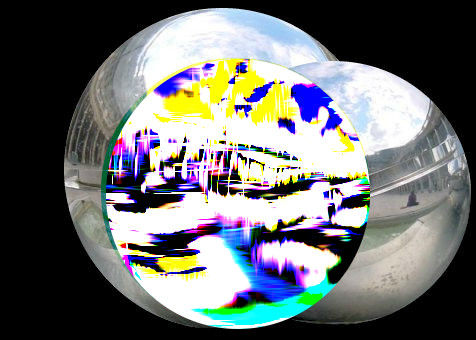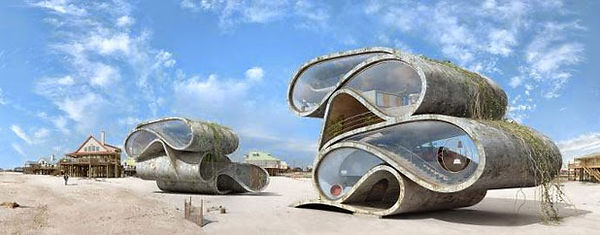
The Scale of the Universe 2
Created by Cary Huang
Implemented by Matthew Martori
Unknown Translato
The Scale of the Univers 2
from nanometer to 10 x 27.0
- http://www.htwins.net/scale2/?bordercolor=whiteThe Scale of the Univers 2
from nanometer to 10 x 27.0
- http://www.htwins.net/scale2/?bordercolor=white

OBSERVABLE UNIVERS 10x27
46,508 milliards années-lumière
L'Univers observable est un terme utilisé en cosmologie pour décrire la partie visible de notre Univers. Par définition, c'est une boule dont la limite est située à l'horizon cosmologique, et dont la Terre constitue le centre. Wikipédia
Rayon : 46,508 milliards années-lumière
Âge : 13.799±0.021 billion years
Masse (matière ordinaire) : 1.5×1053 kg
Volume : 4×1080 m3
Contenu : Ordinary (Baryon) Matière (4.9%); Matière noire (26.8%); Énergie noire (68.3%);
Température moyenne : 2.72548 K
English: Artist's logarithmic scale conception of the observable universe with the Solar System at the center, inner and outer planets, Kuiper belt, Oort cloud, Alpha Centauri, Perseus Arm, Milky Way galaxy, Andromeda galaxy, nearby galaxies, Cosmic Web, Cosmic microwave radiation and the Big Bang on the edge.
Español: Ilustración del universo observable con el Sistema Solar en el centro, los planetas interiores, el cinturón de Asteroides, los planetas exteriores, el cinturón de Kuiper, la nube de Oort, Alfa Centauri, el brazo de Perseus, la Via Láctea, Andrómeda y las galaxias cercanas, la telaraña cósmica de cúmulos galácticos, la radiación de fondo de microondas y el Big Bang en el borde.
Deutsch: Illustration des sichtbaren Universums auf einer logarithmischen Skala mit dem Sonnensystem im Zentrum, innere und äussere Planeten, Kuiper Gürtel, Oort Wolke, Alpha Centauri, Perseus Arm, Galaxie der Milchstrasse, Andromedagalaxie, benachbarte Galaxien, Kosmisches Netz, Kosmische Mikrowellenstrahlung und der Urknall am Rand.

Représentation à l'échelle logarithmique de l'univers observable avec, au centre, le Système solaire, et au fur et à mesure qu'on s'éloigne du centre, les étoiles proches, le bras de Persée, la Voie lactée, les galaxies proches, le réseau des structures à grande échelle, le fond diffus cosmologique et, à la périphérie, le plasma invisible du Big Bang.

U
T
O
P
I
A








DEFINITION
Utopias are idealized visions of a perfect society. ... Thus, the dark mirror of utopias are dystopias—failed social experiments, repressive political regimes, and overbearing economic systems that result from utopian dreams put into practice.
Characteristics of a Utopian Society
Information, independent thought, and freedom are promoted. A figurehead or concept brings the citizens of the society together, but not treated as singular. Citizens are truly free to think independently. Citizens have no fear of the outside world.










 |  |
|---|---|
 |  |
 |  |
 |  |
 |  |




































Utopia VS Dystopia
The word utopia comes from the Greek words ou, meaning “no” or “not,” and topos, meaning “place.” Since its original conception, utopia has come to mean a place that we can only dream about, a true paradise, an ideal world. Dystopia, which is the direct opposite of utopia, is a term used to describe a utopian society in which things have gone wrong. Both utopias and dystopias share characteristics of science fiction and fantasy, and both are usually set in a future in which technology has been used to create perfect living conditions. However, once the setting of a utopian or dystopian novel has been established, the focus of the novel is usually not on the technology itself but rather on the psychology and emotions of the characters who live under such conditions.
Dystopias are a way in which authors share their concerns about society and humanity. They also serve to warn members of a society to pay attention to the society in which they live and to be aware of how things can go from bad to worse without anyone realizing what has happened.


YSTOPIA


TYPOGRAPHY

Creating Hell on Earth: Dystopian Worldbuilding






